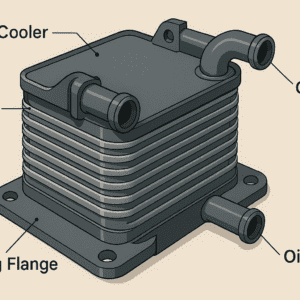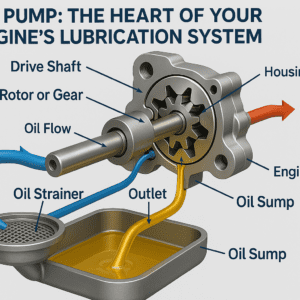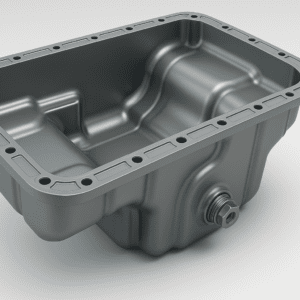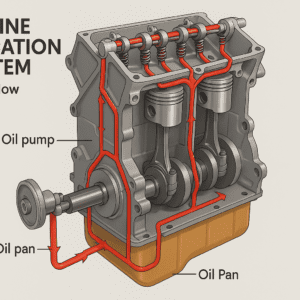
1. Understanding Engine Oil
1.1. Definition of engine oil
Hey there, car enthusiasts and curious minds! Let’s chat about something that’s super important for our vehicles but often overlooked – engine oil.
Think of engine oil as the lifeblood of your car’s engine. It’s this slick, viscous liquid that keeps all the moving parts in your engine running smoothly. Without it, your engine would basically grind to a halt!
Engine oil does more than just lubricate, though. It also helps cool down the engine, clean it, and even protect it from wear and tear. It’s like a superhero for your car, working hard behind the scenes to keep everything in tip-top shape.
Read more about oil pump click on this link: Oil Pump
1.2. Historical development of engine oils
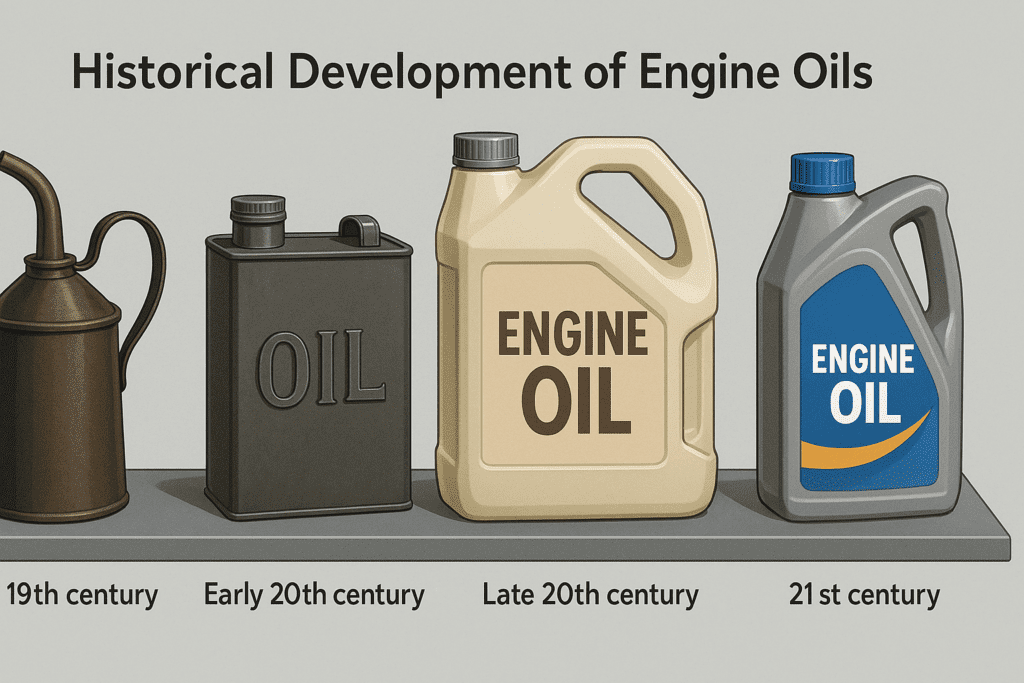
Let’s take a fun trip down memory lane and explore how engine oils have changed over the years. It’s quite a journey!
Early Days of Lubrication
Back in the day, our great-grandparents used some pretty basic stuff to keep their engines running smoothly. Believe it or not, they often used plain old vegetable oils or animal fats! Can you imagine putting cooking oil in your car today? Yikes!
The Rise of Mineral Oils
As cars became more common, smart people realized we needed something better. That’s when mineral oils came into play. These oils, made from crude oil, were a big step up. They did a much better job at keeping engines clean and running well.
Synthetic Oils: The Game Changer
In the mid-20th century, scientists came up with synthetic oils. These were like superheroes for engines! They could handle high temperatures better and didn’t break down as quickly as mineral oils. Plus, they helped engines last longer and use less fuel.
Modern Advances
Today, we have all sorts of amazing engine oils. Some are designed for high-performance cars, others for everyday driving. We even have eco-friendly options now! It’s incredible how far we’ve come from those early days of vegetable oils, isn’t it?
1.3. Importance in modern engines
These days, engine oil is more important than ever. Modern engines are complex machines that need the right kind of oil to function at their best. Without good oil, your engine would wear out quickly and might even break down completely.
Visit website to this link: Autobiography Zone
2. Functions of Engine Oil
2.1. Lubrication and friction reduction

Hey there, fellow car enthusiasts! Let’s chat about something that’s super important for our beloved engines: lubrication and friction reduction. You might not think about it much, but engine oil plays a crucial role in keeping our cars running smoothly.
Imagine your engine as a big family of metal parts, all working together. Without proper lubrication, these parts would rub against each other, causing a lot of wear and tear. That’s where engine oil comes in! It’s like a protective layer that coats all these parts, helping them slide past each other with ease.
But it’s not just about preventing wear. Engine oil also helps reduce friction, which is a big deal for your car’s performance. Less friction means your engine doesn’t have to work as hard, saving you fuel and money in the long run. Plus, it helps keep your engine cooler, which is always a good thing.
2.2. Cooling and heat dissipation

You know how your car’s engine gets super hot when it’s running? Well, engine oil plays a big part in keeping things under control. It’s like a liquid superhero, swooping in to save the day!
As the oil moves through the engine, it picks up heat from all the moving parts. Then, it carries that heat away and spreads it out, kind of like how a fan cools you down on a hot day. This helps prevent any one part from getting too hot and possibly breaking.
But that’s not all! The oil also forms a thin layer between moving parts, which reduces friction. Less friction means less heat is created in the first place. It’s like the oil is saying, “Hey, let’s all just chill out and work together smoothly!”
2.3. Cleaning and debris removal
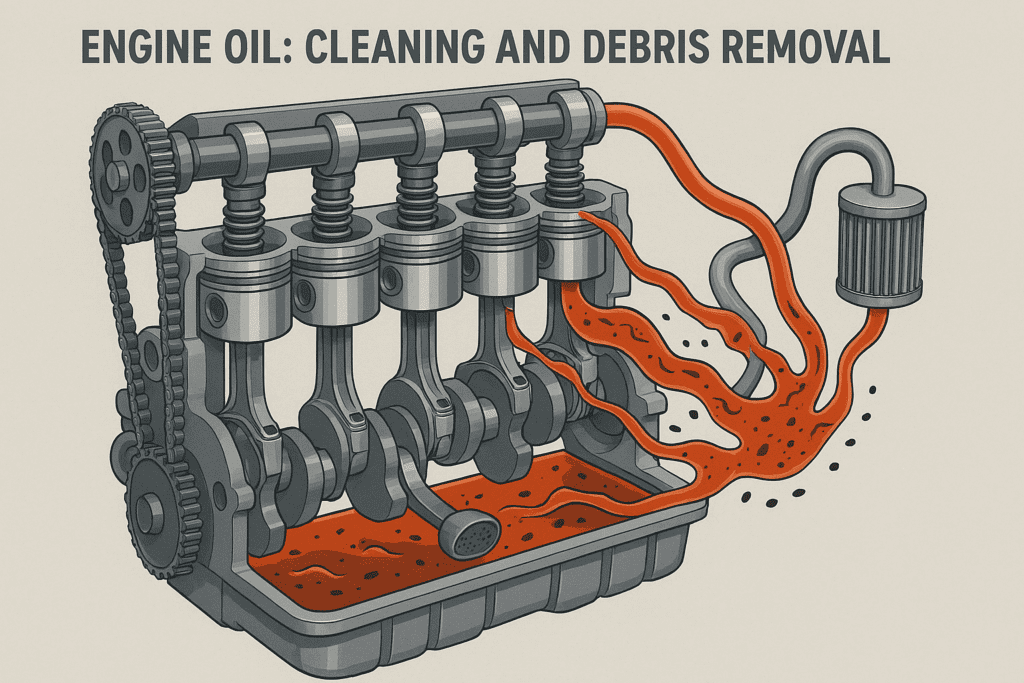
Now, chat about one of the unsung heroes in your engine: the oil. You might not think about it much, but engine oil does more than just lubricate. It’s like a tiny cleaning crew working tirelessly to keep your engine spick and span!
As your engine runs, it creates all sorts of tiny particles. Think of it like the dust in your house, but way smaller and potentially more harmful. This is where our friend, the engine oil, steps in. It swoops through your engine, picking up these little troublemakers along the way.
But how does it do this? Well, engine oil has special additives that act like magnets for these particles. They grab onto them and keep them suspended in the oil. This way, these bits and pieces don’t settle in your engine and cause damage.
Here’s a fun fact: a teaspoon of used engine oil can contain up to 140 million particles! That’s a lot of cleaning, right? This is why it’s so important to change your oil regularly. It’s like giving your engine a fresh, clean slate to work with.
Visit website to this link: Autobiography Zone
3. Types of Engine Oil
3.1. Conventional oil
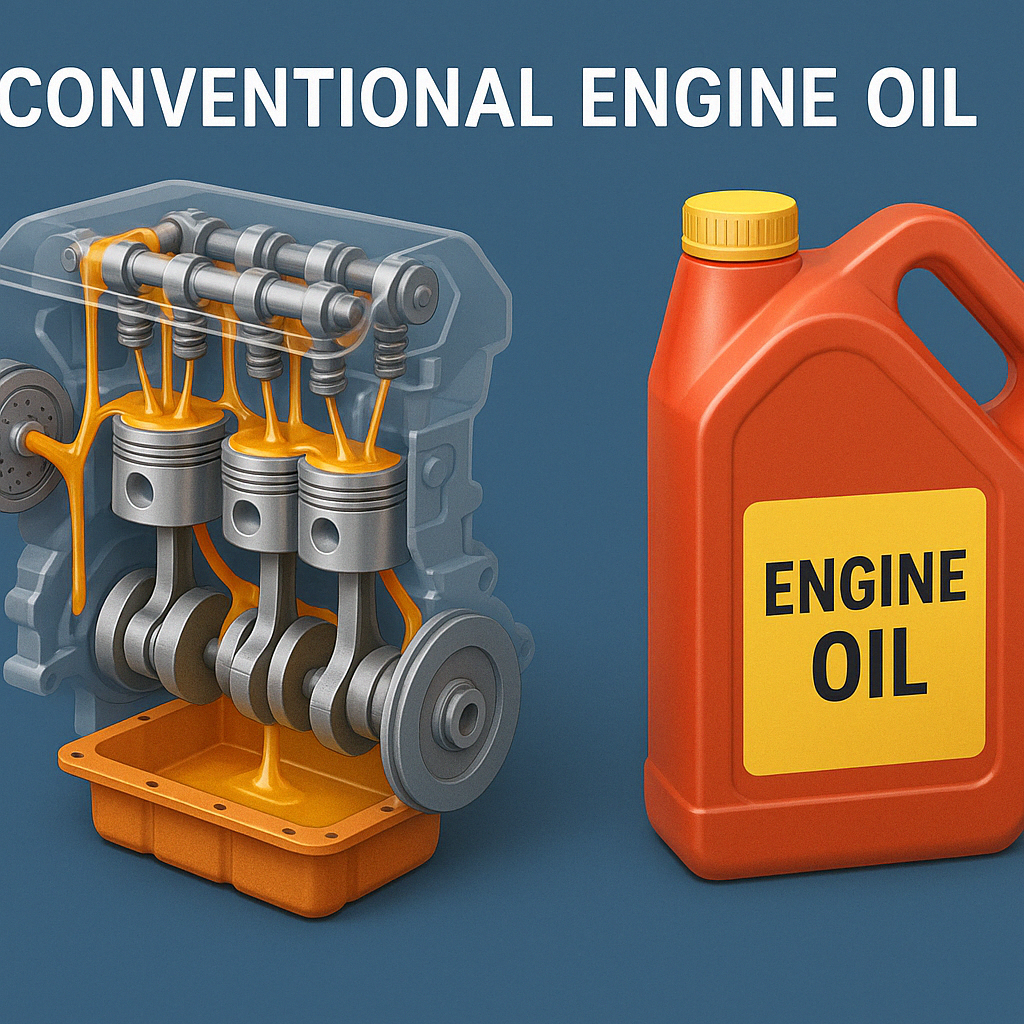
Hey there, fellow car enthusiasts! Let’s chat about conventional oil, the trusty old friend of engines everywhere. This type of oil has been around for ages and is still a popular choice for many drivers.
Conventional oil is made from crude oil that’s refined and mixed with additives. It’s like the classic recipe your grandma uses – tried and true. Many older cars love this stuff, and it’s often cheaper than its fancier cousins.
One thing I love about conventional oil is how it protects engines in normal driving conditions. It’s like a cozy blanket for your car’s heart, keeping everything running smoothly. Plus, it’s readily available at most auto shops and quick lube places.
But here’s the thing – it might need changing more often than synthetic oils. It’s like needing to water a plant more frequently. Also, in extreme temperatures, it might not perform as well as some other options.
3.2. Synthetic oil
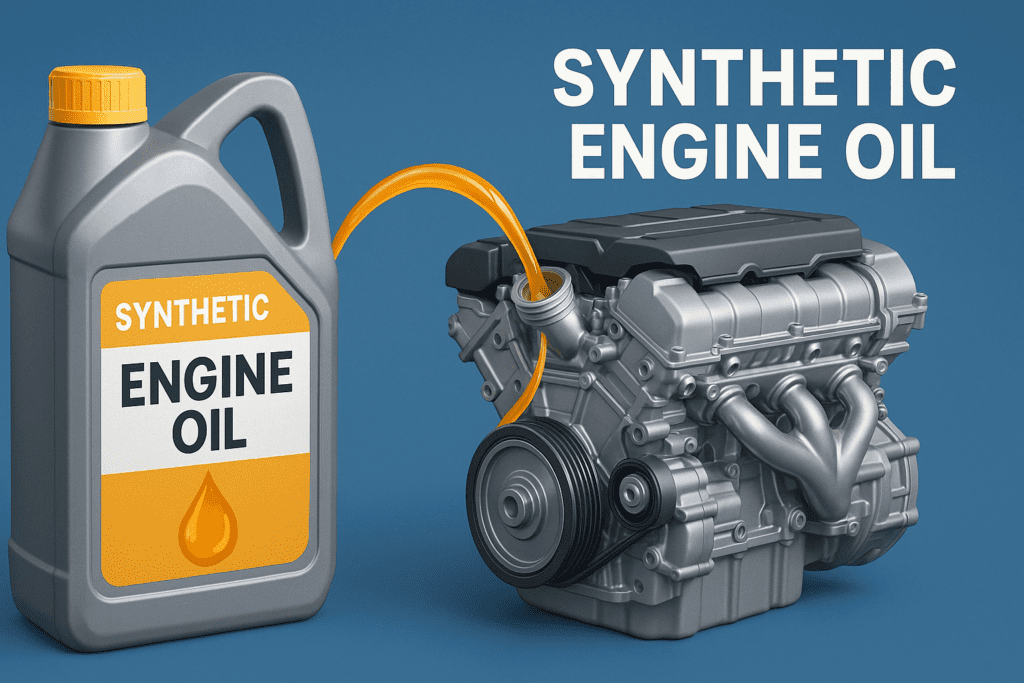
Today, let’s chat about synthetic oil, a real game-changer in the world of engine lubrication.
Synthetic oil is like the superhero of engine oils. It’s made in a lab, carefully crafted to give your engine the best protection possible. Unlike conventional oil that comes straight from the ground, synthetic oil is designed molecule by molecule to keep your engine running smoothly.
One of the coolest things about synthetic oil is how well it performs in extreme temperatures. Whether it’s a scorching summer day or a freezing winter morning, synthetic oil keeps flowing and protecting your engine. It’s like a loyal friend who’s always there for you, no matter the weather!
Another great thing about synthetic oil is that it lasts longer than conventional oil. This means fewer oil changes for you, which is not only convenient but also better for the environment. It’s a win-win situation!
3.3. Semi-synthetic (blend) oil

Now, talk about something that’s often overlooked but super important for our beloved vehicles – semi-synthetic oil. This nifty blend is like the best of both worlds, combining the good stuff from conventional and fully synthetic oils.
What is Semi-Synthetic Oil?
Semi-synthetic oil, also known as a blend, is exactly what it sounds like – a mix of conventional mineral oil and synthetic oil. It’s like when you mix your favorite ice cream flavors to get the perfect combo!
Benefits of Semi-Synthetic Oil
- Better protection than conventional oil
- More affordable than full synthetic
- Performs well in both hot and cold temperatures
- Helps keep your engine cleaner
When to Use Semi-Synthetic Oil
If you’re driving a car that’s a few years old or you do a mix of city and highway driving, semi-synthetic oil might be your perfect match. It’s great for those of us who want a step up from conventional oil without breaking the bank.
Pro tip: Always check your car’s manual to see what type of oil is recommended!
Remember, choosing the right oil is like picking the right shoes – it needs to fit your car’s needs perfectly. Semi-synthetic oil offers a great balance of performance and price, making it a popular choice for many drivers.
This is a mix of conventional and synthetic oils. It’s a good middle-ground option that offers some of the benefits of synthetic oil at a lower price.
4. The Necessity of Engine Oil
4.1. Protection against engine wear

Hey there, fellow car enthusiasts! Let’s chat about something that’s super important for keeping our beloved vehicles running smoothly: protecting our engines from wear and tear.
The Silent Guardian: Engine Oil
You know how we all need a good friend to look out for us? Well, engine oil is like that loyal buddy for your car’s engine. It’s always there, working hard behind the scenes to keep everything in tip-top shape.
How Engine Oil Fights Wear
Engine oil is pretty amazing. Here’s what it does:
- Creates a slippery barrier between moving parts
- Carries away heat and nasty debris
- Helps seal gaps to maintain pressure
It’s like a superhero for your engine, fighting off the bad guys (friction and heat) to keep your car running smoothly.
The Consequences of Neglect
Imagine running a marathon without water – that’s what it’s like for your engine without proper oil care. Neglecting oil changes can lead to:
- Increased friction and heat
- Build-up of harmful deposits
- Reduced engine performance and lifespan
A Little TLC Goes a Long Way
Taking care of your engine oil is easier than you might think:
- Regular oil changes (check your car’s manual for the schedule)
- Using the right type of oil for your vehicle
- Keeping an eye on oil levels between changes
By showing your engine some love, you’ll be rewarded with a car that runs better and lasts longer. It’s a win-win!
Remember, a well-oiled engine is a happy engine. So, let’s keep those engines purring and hit the road with confidence!
4.2. Improved fuel efficiency
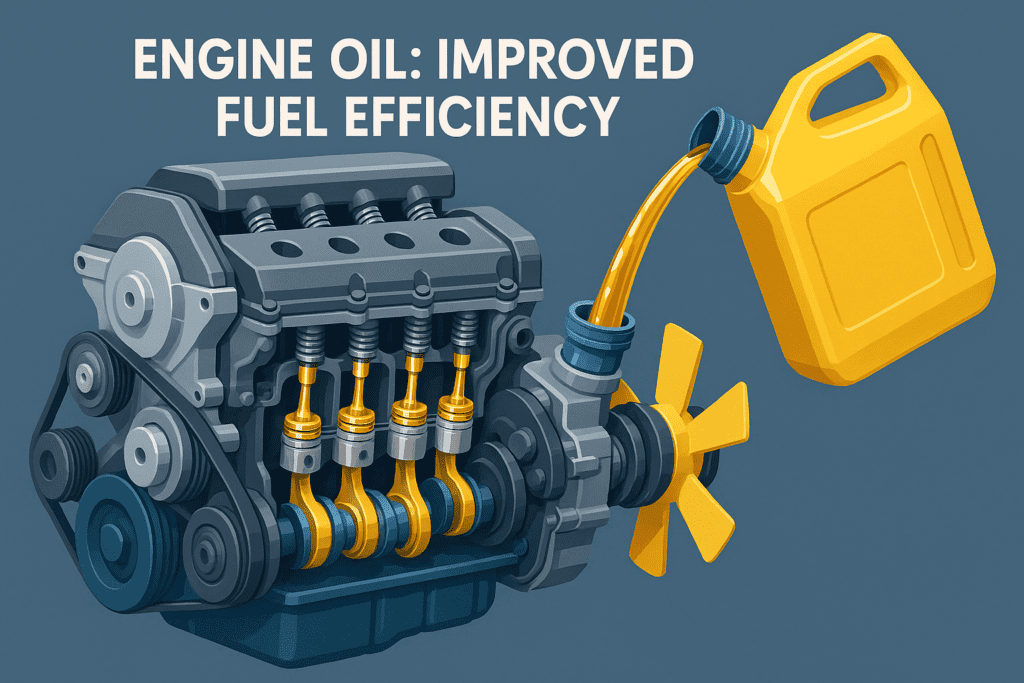
Hey there, fellow car enthusiasts! Let’s chat about something that’s close to all our hearts (and wallets) – getting more miles out of every drop of fuel. Who doesn’t love the idea of saving money and helping the environment at the same time?
The Magic of Fuel Efficiency
You know that great feeling when you realize your tank of gas has lasted longer than usual? That’s the joy of improved fuel efficiency! It’s not just about pinching pennies; it’s about making our cars work smarter, not harder.
Simple Tricks for Better Mileage
- Keep those tires properly inflated – it’s like giving your car comfy shoes to walk in.
- Regular oil changes are like giving your car a refreshing drink. Happy engine, happy wallet!
- Ease up on that lead foot! Gentle acceleration is key. Think of it as giving your car a relaxing drive.
Tech to the Rescue
Modern cars are pretty clever. They come with all sorts of gadgets to help us save fuel. Things like start-stop technology and hybrid systems are like having a fuel-saving co-pilot.
“Improved fuel efficiency isn’t just good for your pocket; it’s a high-five to Mother Earth too!”
The Big Picture
When we all work on improving our fuel efficiency, it’s not just about individual savings. We’re talking about less pollution, reduced dependence on oil, and a healthier planet for everyone. Now that’s something to feel good about!
4.3. Extended engine lifespan
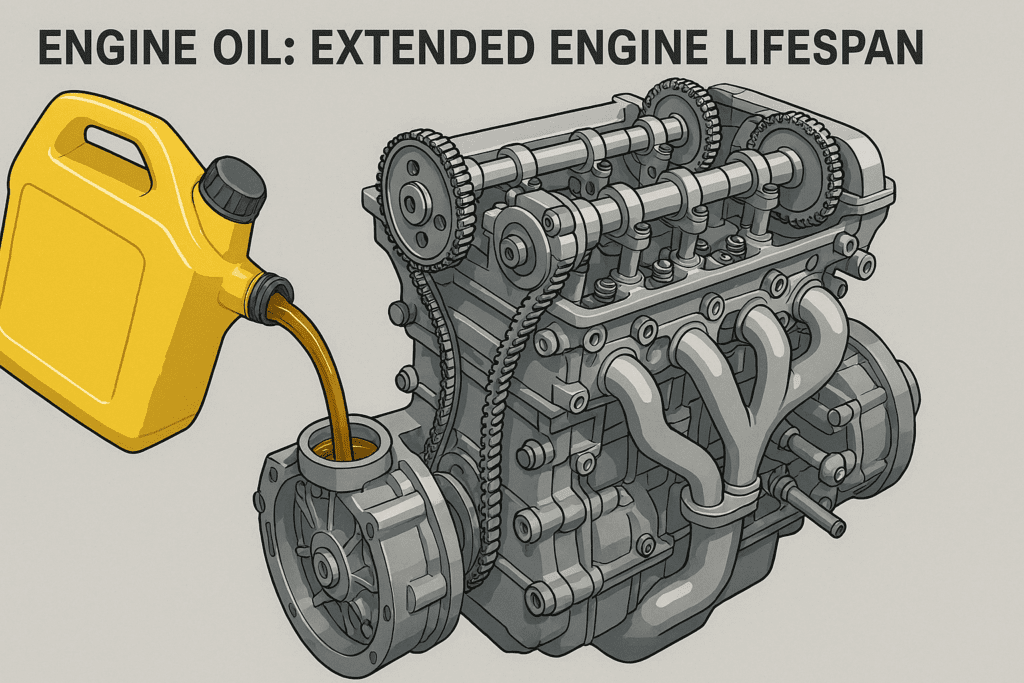
First off, did you know that regular oil changes can actually make your engine last longer? It’s true! Clean oil helps all those moving parts in your engine slide against each other without causing too much wear and tear. It’s like giving your engine a nice, slippery coat that protects it from damage.
But here’s the thing: oil doesn’t stay clean forever. Over time, it gets dirty and loses its protective qualities. That’s why it’s so important to change your oil regularly. Think of it like giving your engine a fresh start every few thousand miles.
And here’s a fun fact: using the right type of oil can make a big difference too. Modern engines often need special synthetic oils that can handle high temperatures and pressures better than traditional oils. It’s like giving your engine a tailor-made suit instead of a one-size-fits-all outfit.
So, next time you’re due for an oil change, remember that you’re not just ticking a box on your car maintenance checklist. You’re actually helping your engine live a longer, healthier life. Your car will thank you for it!
Regular oil changes and using the right type of oil can help your engine last much longer. It’s like giving your car a long, healthy life.
5. Understanding Oil Viscosity
5.1. Definition and measurement of viscosity
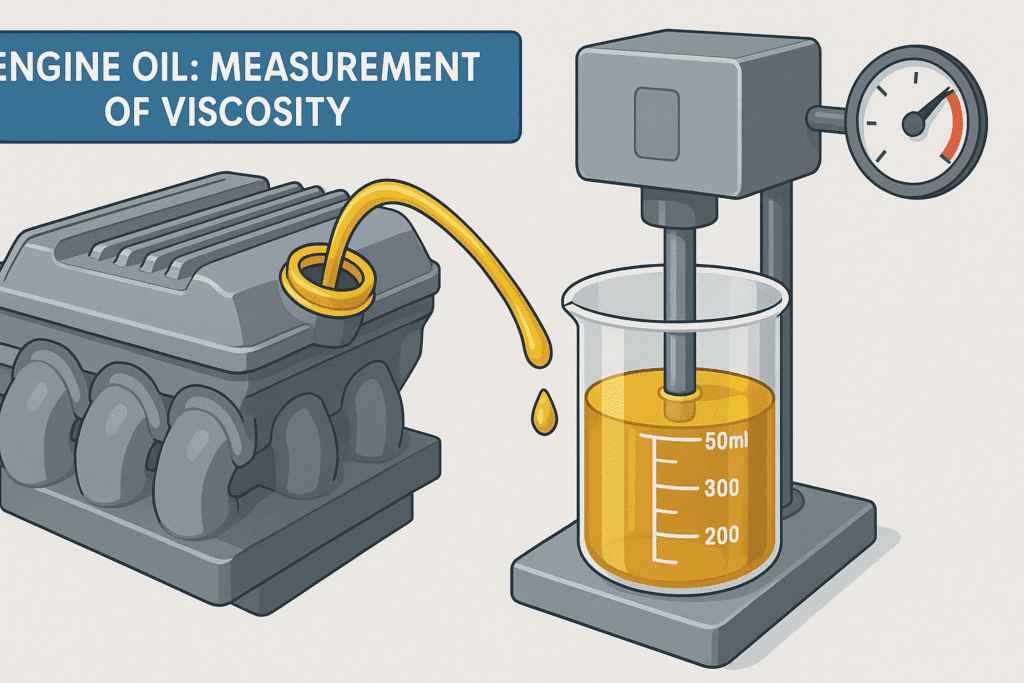
Let’s talk about something that’s super important for our engines oil viscosity. Don’t worry, I’m not going to bore you with complicated science stuff. We’ll keep it simple and fun!
So, what exactly is viscosity? Well, it’s basically how thick or thin a liquid is. Think of it like this: honey is very viscous (thick and slow-flowing), while water has low viscosity (thin and fast-flowing). When it comes to engine oil, viscosity is crucial because it affects how well the oil can protect and lubricate your engine parts.
Now, how do we measure this thickness? There’s actually a cool system for that! It’s called the SAE viscosity rating. SAE stands for Society of Automotive Engineers (fancy, right?). They’ve come up with a way to grade oil viscosity using numbers and letters.
Here’s a quick breakdown:
- Numbers without a ‘W’ (like SAE 30) are for single-grade oils
- Numbers with a ‘W’ (like 5W-30) are for multi-grade oils
The ‘W’ stands for winter, by the way. It tells us how the oil behaves in cold temperatures. The lower the number before the W, the better it flows when it’s cold outside.
To measure viscosity, scientists use special tools like viscometers. They basically time how long it takes for oil to flow through a tube. The longer it takes, the higher the viscosity.
Remember: The right viscosity keeps your engine happy and healthy!
Choosing the right oil viscosity for your car is super important. It’s not just about picking the thickest oil you can find. You need to consider things like your car’s age, the climate you live in, and what the manufacturer recommends.
Visit website to this link: Autobiography Zone
5.2. Single-grade vs. multi-grade oils

Today, we’re going to dive into the world of single-grade and multi-grade oils. Trust me, it’s more interesting than it sounds!
Single-grade Oils: The Old School Cool
Single-grade oils are pretty straightforward. They have one viscosity rating, which means they behave pretty much the same way regardless of temperature. These were the go-to oils back in the day when our grandparents were cruising around in their classic cars.
Pros of Single-grade Oils:
- Simple and straightforward
- Work well in consistent climates
- Often cheaper than multi-grade oils
Cons of Single-grade Oils:
- Not great for extreme temperature changes
- May need to be changed seasonally
- Less common in modern vehicles
Multi-grade Oils: The New Kid on the Block
They can change their viscosity based on temperature, which is pretty cool when you think about it.
Pros of Multi-grade Oils:
- Work well in a wide range of temperatures
- Don’t need to be changed seasonally
- Better for modern engines
Cons of Multi-grade Oils:
- Can be more expensive
- Might be overkill for older engines
Which One Should You Choose?
Honestly, for most of us driving modern cars, multi-grade oils are the way to go. They’re like a comfy pair of shoes that work for both a casual walk and a night out dancing. But if you’ve got a vintage beauty in your garage, you might want to stick with single-grade oils.
Remember, the best oil for your car is the one recommended in your owner’s manual. When in doubt, give your trusted mechanic a shout – they’ll steer you in the right direction!
Fun fact: The numbers you see on oil containers (like 10W-30) actually tell you about the oil’s viscosity at different temperatures. The more you know!
5.3. Choosing the right viscosity for your vehicle
Let’s talk about something that’s super important but often overlooked: oil viscosity. It might sound a bit technical, but don’t worry – I’ll break it down for you in a way that’s easy to understand.
Why Does Viscosity Matter?
The right viscosity is crucial for your engine’s health. It affects how well the oil can:
- Protect your engine parts
- Keep everything running smoothly
- Help with fuel efficiency
Understanding Viscosity Numbers
You’ve probably seen those numbers on oil bottles, like 5W-30 or 20W-40. Here’s what they mean:
- The first number (with the W) is for cold weather performance
- The second number is for hot weather performance
Lower numbers mean thinner oil, higher numbers mean thicker oil
Choosing the Right Viscosity
So, how do you pick the right one? Here are some tips:
- Check your owner’s manual (it’s your best friend here!)
- Consider your local climate
- Think about your driving habits
Remember, using the wrong viscosity can lead to engine damage or poor performance. When in doubt, ask a mechanic!
Changing Seasons, Changing Oil?
In some places, you might need different viscosities for summer and winter. If you live somewhere with extreme temperature changes, this might be something to consider.
By picking the right viscosity, you’re doing your car a big favor. It’s like choosing the perfect outfit for your engine – not too tight, not too loose, just right!
The best viscosity for your car depends on things like the climate you live in and what kind of engine you have. Your car’s manual will tell you what viscosity to use.
Visit website to this link: Autobiography Zone
6. Oil Change Periodicity
6.1. Factors affecting oil change frequency
How often you need to change your oil depends on things like how you drive, the age of your car, and the type of oil you use.
6.2. Manufacturer recommendations
Your car’s maker will give you a recommended oil change schedule. It’s a good idea to follow this unless you have special circumstances.
6.3. Signs that indicate the need for an oil change
If your oil looks dark and gritty, or if your oil change light comes on, it’s probably time for fresh oil.
7. Advantages of Regular Oil Maintenance
7.1. Improved engine performance
Regular oil changes keep your engine running at its best. You might notice your car feels more responsive and runs more smoothly.
7.2. Cost savings in the long run
While oil changes cost money, they’re much cheaper than having to repair or replace a damaged engine.
7.3. Environmental benefits
A well-maintained engine runs more efficiently and produces fewer emissions. It’s a small way to help the environment.
8. Conclusion
8.1. Recap of key points
We’ve covered a lot about engine oil, from what it is to why it’s so important for your car.
8.2. Importance of proper engine oil care
Taking care of your engine oil is one of the best things you can do for your car. It’s simple, but it makes a big difference.
8.3. Future trends in engine oil technology
As cars keep evolving, so will engine oils. We might see even more advanced synthetic oils or oils designed for electric and hybrid vehicles.
Read more about Engine click on this link: Engine
9. Frequently Asked Questions
FAQs About Engine Oil
1. How often should I really change my engine oil?
Hey there, car buddy! This is a question we get all the time. The truth is, it depends on your car and how you drive it. Most modern cars can go between 5,000 to 7,500 miles before needing an oil change. But if you’re often stuck in stop-and-go traffic or take lots of short trips, you might need to change it more often. Always check your car’s manual for the best advice.
2. Is synthetic oil worth the extra cost?
Ah, the age-old synthetic vs. conventional oil debate! In my experience, synthetic oil is often worth the extra bucks. It lasts longer, performs better in extreme temperatures, and can even improve your fuel efficiency a bit. Plus, it’s gentler on your engine in the long run. But hey, if your car runs fine on conventional oil and that’s what the manual recommends, there’s no need to switch.
3. What’s the deal with oil weight numbers like 5W-30?
Don’t worry, you’re not alone in being confused by these numbers! They’re actually pretty simple once you know what they mean. The first number (5W in this case) is how the oil flows when it’s cold, and the second number (30) is how it flows at normal engine temperatures. Lower numbers mean thinner oil. Your car’s manual will tell you which weight is best for your engine.
Visit website to this link: Autobiography Zone
4. Can I mix different brands of oil?
You know, I’ve been guilty of this myself when I’ve been in a pinch! The short answer is yes, you can mix different brands. All engine oils have to meet the same basic standards. However, it’s best to stick with one brand if you can, especially if you’re using a special type like synthetic or high-mileage oil.
5. What’s that burning oil smell all about?
Uh-oh, burning oil smell is never good news! It could mean you’re leaking oil onto hot engine parts, or your engine is burning oil internally. Either way, it’s time for a trip to the mechanic. Don’t ignore this one, friends – it could lead to bigger problems down the road.
6. Is it bad to go a little over the recommended oil change interval?
We’ve all been there – life gets busy and suddenly you’re 500 miles over your oil change interval. While it’s not ideal, going a little over isn’t usually a disaster. Modern oils and engines are pretty forgiving. Just don’t make it a habit, okay? Regular oil changes are one of the easiest ways to keep your car happy and healthy.
7. Do I really need to warm up my car before driving in cold weather?
This is a great question, especially for those of us in chilly climates! The good news is, modern cars don’t really need a long warm-up. About 30 seconds is enough to get the oil flowing. After that, it’s actually better to start driving gently. The engine warms up faster when it’s working, which is better for your oil and your fuel efficiency.
8. What’s the difference between regular and high-mileage oil?
High-mileage oil is like a spa day for your older car! It’s designed for vehicles with over 75,000 miles on the clock. It has special additives that help condition seals, reduce oil burn-off, and clean out engine sludge. If your car’s getting up there in miles, it might be worth giving high-mileage oil a try.
9. Can I switch back to conventional oil after using synthetic?
You sure can! There’s no problem switching back and forth between synthetic and conventional oil. Just make sure you’re using the right weight for your car. Some people switch to conventional in older cars to save a few bucks, while others stick with synthetic for its extra benefits. It’s really up to you and what your car needs.
10. How do I know if my car is leaking oil?
Good catch! Oil leaks can sneak up on you. The most obvious sign is dark spots on your driveway or garage floor. You might also notice the smell of burning oil, especially after parking. If your oil level is dropping faster than normal between changes, that’s another red flag. When in doubt, ask your mechanic to take a look – they can spot leaks that might not be obvious to us non-pros.
Remember, your engine oil is like your car’s lifeblood. Treat it well, and your car will thank you with many miles of happy driving!
Visit website to this link: Autobiography Zone
